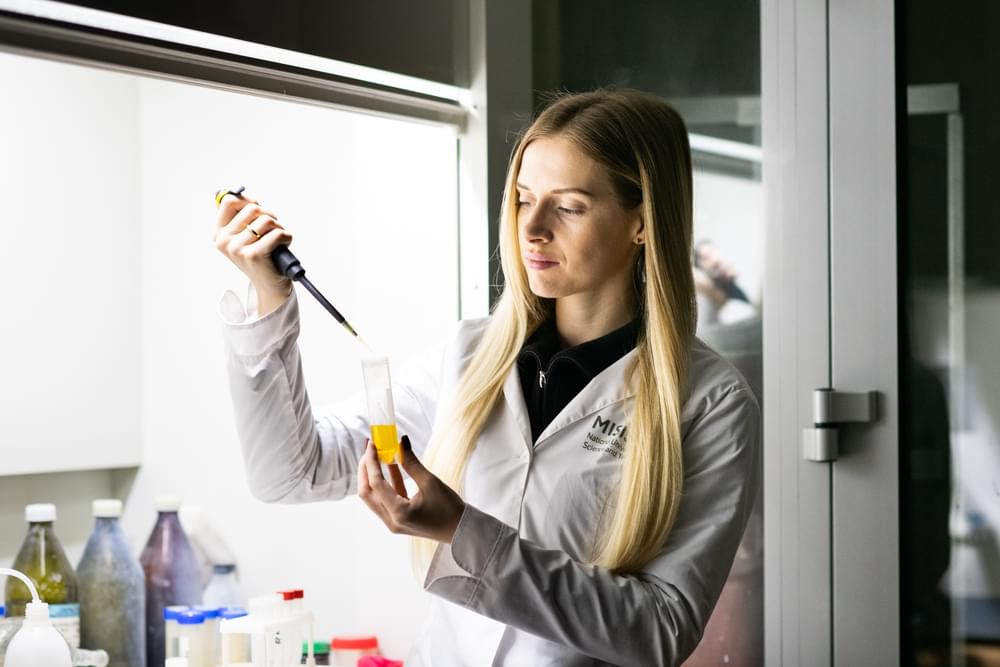
Category: biotech/medical – Page 1,627

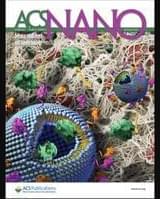
Communication Breakdown: Into the Molecular Mechanism of Biofilm Inhibition
Bacterial biofilm formation is a huge problem in industry and medicine. Therefore, the discovery of anti-biofilm agents may hold great promise. Biofilm formation is usually a consequence of bacterial cell–cell communication, a process called quorum sensing (QS). CeO2 nanocrystals (NCs) have been established as haloperoxidase (HPO) mimics and ecologically beneficial biofilm inhibitors. They were suggested to interfere with QS, a mechanism termed quorum quenching (QQ), but their molecular mechanism remained elusive. We show that CeO2 NCs are effective QQ agents, inactivating QS signals by bromination. Catalytic bromination of 3-oxo-C12-AHL a QS signaling compound used by Pseudomonas aeruginosa, was detected in the presence of CeO2 NCs, bromide ions, and hydrogen peroxide. Brominated acyl-homoserine lactones (AHLs) no longer act as QS signals but were not detected in the bacterial cultures.
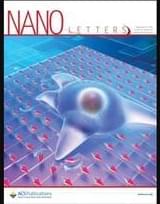
All-Optical Modulation of Single Defects in Nanodiamonds: Revealing Rotational and Translational Motions in Cell Traction Force Fields
Measuring the mechanical interplay between cells and their surrounding microenvironment is vital in cell biology and disease diagnosis. Most current methods can only capture the translational motion of fiduciary markers in the deformed matrix, but their rotational motions are normally ignored. Here, by utilizing single nitrogen-vacancy (NV) centers in nanodiamonds (NDs) as fluorescent markers, we propose a linear polarization modulation (LPM) method to monitor in-plane rotational and translational motions of the substrate caused by cell traction forces. Specifically, precise orientation measurement and localization with background suppression were achieved via optical polarization selective excitation of single NV centers with precisions of ∼0.5°/7.5 s and 2 nm/min, respectively.
Dr. Jacob Hanna, MD, Ph.D. — Synthetic Embryo R&D In Regenerative Medicine & Developmental Biology
(https://hannalabweb.weizmann.ac.il/) is a Senior Scientist and Professor in the Department of Molecular Genetics at the Weizmann Institute of Science in Israel, where his lab, and the interdisciplinary group of scientists within it, are focused on understanding the complexity of early embryonic stem cell biology and early developmental dynamics, as well as advancing human disease modeling.
More specifically, Dr. Hanna’s lab investigates the detailed process of cellular reprogramming, in which induced pluripotent stem cells are generated from somatic cells, and they investigate how pluripotency is maintained throughout development in mouse and human. In their studies they employ a diverse arsenal of biological experimentation methods, high throughput screening, advanced microscopy and genomic analyses seeking to combine biological experimentation with computational biology, theory and modeling, to elucidate various biological questions.
Dr. Hanna completed both his MD and PhD at The Hebrew University of Jerusalem, where his work was focused in the domain of immunology with his thesis focus on novel molecular and functional properties of human NK Subsets. He then went on to do postdoctoral studies at the Whitehead Institute for Biomedical Research at MIT under the tutelage of Prof. Dr. Rudolf Jaenisch with a field of study of pluripotency and epigenetic reprogramming.
Dr. Hanna is also Founder and Chief Scientific Advisor, of Renewal Bio (https://www.renewal.bio/), a biotech company looking to leverage the power of these new stem cell technologies, potentially applying them to a wide variety of human ailments including infertility, genetic diseases, and longevity.
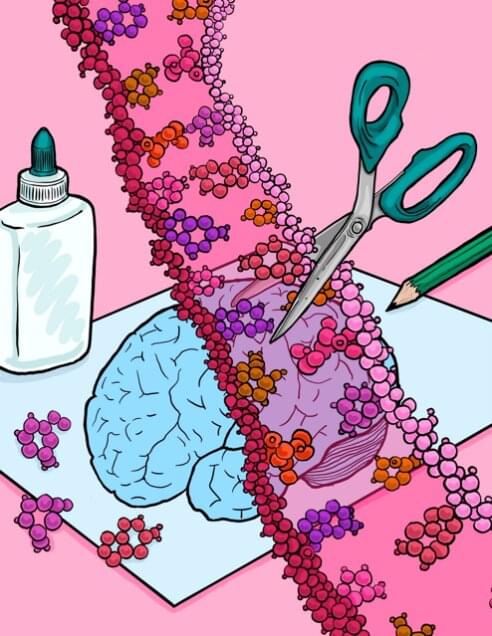
Sites in the brain where RNA is edited could help our understanding of neurodevelopment and disease
Mount Sinai researchers have cataloged thousands of sites in the brain where RNA is modified throughout the human lifespan in a process known as adenosine-to-inosine (A-to-I) editing, offering important new avenues for understanding the cellular and molecular mechanisms of brain development and how they factor into both health and disease.
In a study published in Cell Reports, the team described how the rate of RNA editing in the brain increases as individuals age, with implications for dissecting the pathology of altered A-to-I editing across a range of neurodevelopmental and aging disorders.
“Our work provides more nuanced and accurate insights into the contribution of RNA modifications by A-to-I editing during human brain development,” says senior author Michael Breen, Ph.D., Assistant Professor of Psychiatry, and Genetics and Genomic Sciences, at the Icahn School of Medicine at Mount Sinai, and a member of the Seaver Center for Autism Research and Treatment.

Anthropologists find new ways female bones are permanently altered after giving birth
Reproduction permanently alters females’ bones in ways not previously known, a team of anthropologists has found. Its discovery, based on an analysis of primates, sheds new light on how giving birth can permanently change the body.
“Our findings provide additional evidence of the profound impact that reproduction has on the female organism, further demonstrating that the skeleton is not a static organ, but a dynamic one that changes with life events,” explains Paola Cerrito, who led the research as a doctoral student in NYU’s Department of Anthropology and College of Dentistry.
Specifically, the researchers found that calcium, magnesium, and phosphorus concentrations are lower in females who have experienced reproduction. These changes are linked to giving birth itself and to lactation.
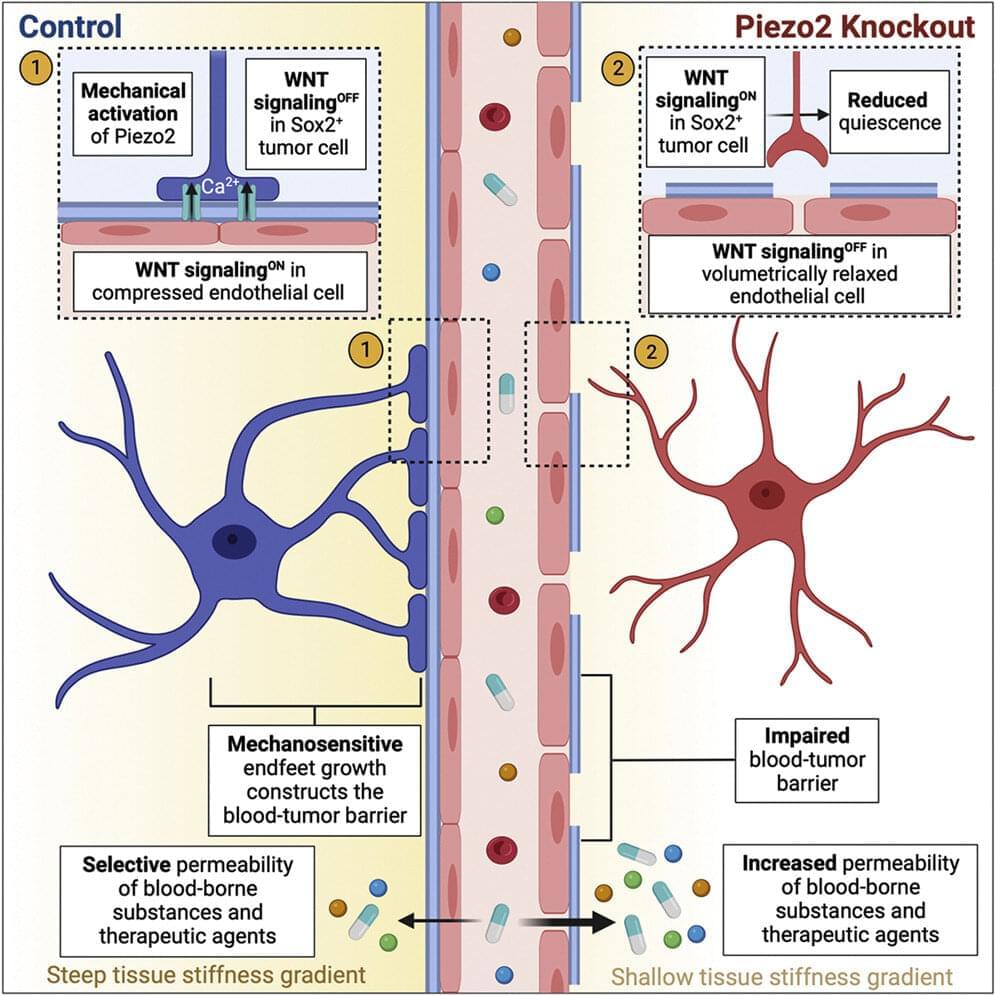
New research rethinks the blood-tumor barrier and identifies novel path to brain cancer treatment
In a new study, scientists have uncovered the mechanics of the blood-tumor barrier, one of the most significant obstacles to improving treatment efficacy and preventing the return of cancerous cells. The research team, led by Dr. Xi Huang, a Senior Scientist in Developmental & Stem Cell Biology program at The Hospital for Sick Children (SickKids), lays the foundation for more effectively treating medulloblastoma, the most common malignant pediatric brain tumor.
“Despite decades of research on brain cancer, the mechanisms that govern the formation and function of the blood-tumor barrier have remained poorly understood,” says Huang, who is also a Principal Investigator at the Arthur and Sonia Labatt Brain Tumor Research Center and Canada Research Chair in Cancer Biophysics. “Our discoveries represent a breakthrough in the understanding of how the blood-tumor barrier forms and works.”
In a paper published today in Neuron, the research team identifies a way to reduce the impact of the blood-tumor barrier on medulloblastoma treatment.
Using sound to model the world
Imagine the booming chords from a pipe organ echoing through the cavernous sanctuary of a massive, stone cathedral.
The sound a cathedral-goer will hear is affected by many factors, including the location of the organ, where the listener is standing, whether any columns, pews, or other obstacles stand between them, what the walls are made of, the locations of windows or doorways, etc. Hearing a sound can help someone envision their environment.
Researchers at MIT and the MIT-IBM Watson AI Lab are exploring the use of spatial acoustic information to help machines better envision their environments, too. They developed a machine-learning model that can capture how any sound in a room will propagate through the space, enabling the model to simulate what a listener would hear at different locations.
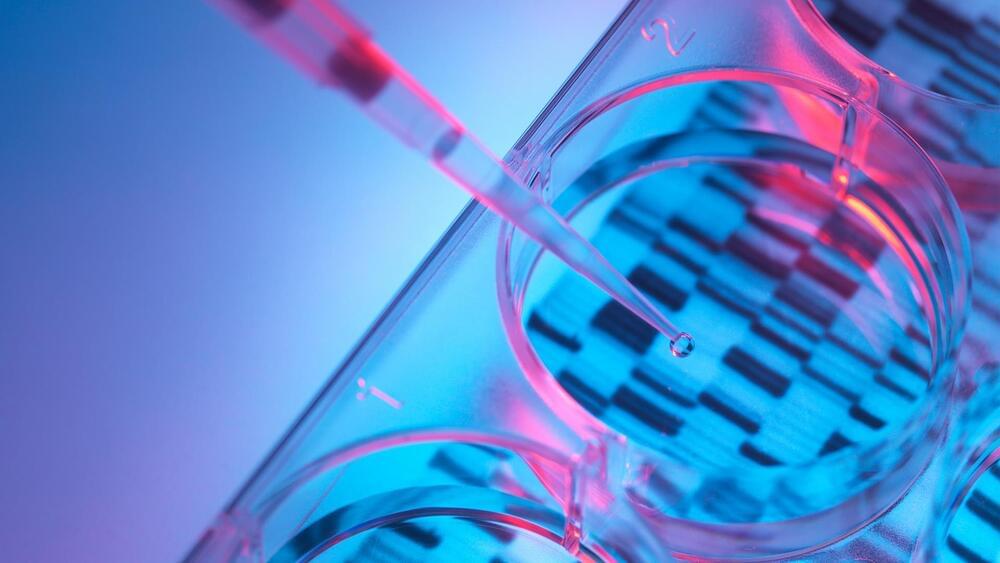
Artificial intelligence discovers life-changing drug and human trials have begun
ARTIFICIAL intelligence has discovered a new life-changing drug and human trials are already underway.
The biotech company behind the breakthrough has dosed its first patient with an AI-developed treatment for ALS patients.
Alice Zhang, 33, is the founder of Verge Genomics and a former neuroscience doctoral student at University of California.
Meta’s newest AI determines proper protein folds 60 times faster
Life on Earth would not exist as we know it, if not for the protein molecules that enable critical processes from photosynthesis and enzymatic degradation to sight and our immune system. And like most facets of the natural world, humanity has only just begun to discover the multitudes of protein types that actually exist. But rather scour the most inhospitable parts of the planet in search of novel microorganisms that might have a new flavor of organic molecule, Meta researchers have developed a first-of-its-kind metagenomic database, the ESM Metagenomic Atlas, that could accelerate existing protein-folding AI performance by 60x.
Metagenomics is just coincidentally named. It is a relatively new, but very real, scientific discipline that studies “the structure and function of entire nucleotide sequences isolated and analyzed from all the organisms (typically microbes) in a bulk sample.” Often used to identify the bacterial communities living on our skin or in the soil, these techniques are similar in function to gas chromatography, wherein you’re trying to identify what’s present in a given sample system.
Similar databases have been launched by the NCBI, the European Bioinformatics Institute, and Joint Genome Institute, and have already cataloged billions of newly uncovered protein shapes. What Meta is bringing to the table is “a new protein-folding approach that harnesses large language models to create the first comprehensive view of the structures of proteins in a metagenomics database at the scale of hundreds of millions of proteins,” according to a Tuesday release from the company. The problem is that, while advances of genomics have revealed the sequences for slews of novel proteins, just knowing what those sequences are doesn’t actually tell us how they fit together into a functioning molecule and going figuring it out experimentally takes anywhere from a few months to a few years. Per molecule. Ain’t nobody got time for that.